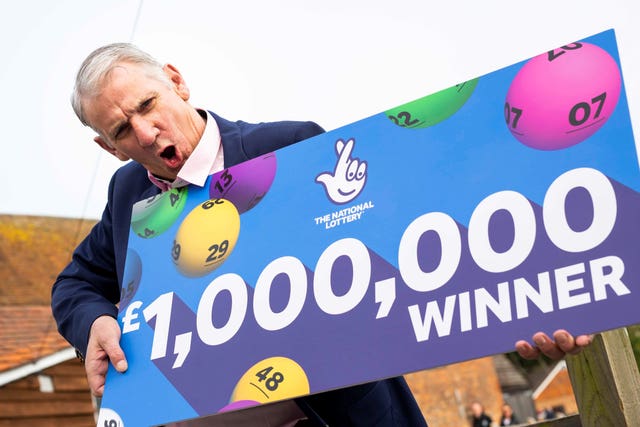Camelot sees record lottery sales despite pandemic
The National Lottery operator revealed strong growth in its online business, with £1.2 billion raised for Covid relief efforts.

National Lottery operator Camelot revealed sales jumped nearly 6% in the past year as bored households turned to lottery tickets, scratchcards and online games in record numbers.
The company said as a result of the high uptake, donations to good causes hit £1.9 billion, including £1.2 billion in Covid-19 support, making the lottery the biggest single financial contributor to the pandemic relief effort outside of the Government.
In the year to the end of March revenues hit £8.37 billion – up £468.8 million on the same period a year earlier, including £4.7 billion through its main Lotto draws.

Chief executive Nigel Railton explained that lottery operators in Europe were hit hard but Camelot boosted sales through improving relations with retailers, introducing new games and boosting investment in its online platforms.
He said: “It could have been very different had we not intervened, doing the right thing at the right time.
“If we look across to other lotteries in Europe, France was down about 12%, Spain turned off their retail channel for a considerable period and their sales were down significantly too. Italy was also hit hard.”
With much of the high street shut during large swathes of the year, physical scratchcard sales were down – especially in the first half of the year – although this was offset by strong growth in their sales online, hitting total sales in the Instants category of £3.7 billion.
Around 2.7 million extra digital players registered online with the average weekly spend up less than 3%, with fewer than two online instant games played per person per week on average, the company said.
The pandemic hit total in-store sales – including traditional lottery tickets, which fell from £5.45 billion to £4.86 billion in the past year.
By the half year it was down 18.9% due to the lockdowns, although they recovered in the second half and since the end of March retail sales are nearly back to pre-pandemic levels.
But overall online sales helped offset the fall, with £3.51 billion handed over via the National Lottery’s website – up 42.8% on a year ago.
As a result, bosses have approved an accelerated investment plan for the digital channel to ensure additional traffic could be accommodated.
Within digital, mobile sales grew by £876.4 million to an all-time high of £2.48 billion, primarily through the National Lottery apps.
He said: “Our philosophy is that we encourage people to play on both online and in stores. We’ve got 45,000 retailers and they will continue to be the backbone of the National Lottery in the future.
“Retail will remain at the heart of the National Lottery because it’s really important to the local community.”
Online gaming in the UK has faced heavy scrutiny in the past year, with the Gambling Commission carrying out a review into online casinos following a huge spike in use during the pandemic.
The regulator is particularly concerned about high speed casino games where customers can spend huge amounts in very short spaces of time.
But Mr Railton said Camelot has no plans to move into faster games. He added: “The Gambling Commission has to do its piece of work and we will look at it with interest.
“The National Lottery is distinct from gambling… it’s the connection with good causes that really differentiates the National Lottery from gambling completely.”





